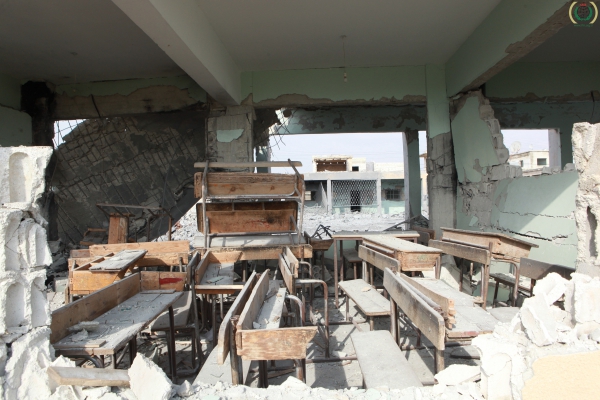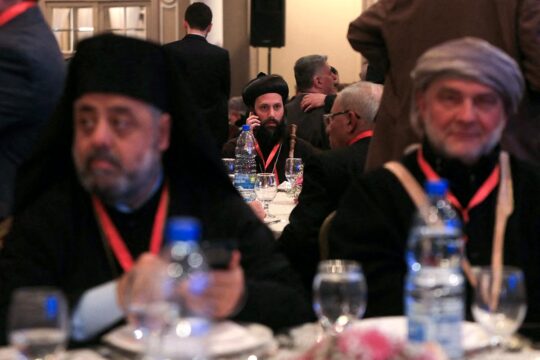On April 5, 2016, ICC judges dropped the case against Kenyan Deputy President William Ruto and journalist Joshua Sang. Since the Court was set up in 2002, eight accused persons have escaped conviction thanks to lack of solid evidence, and a ninth – Mathieu Ngudjolo of the Democratic Republic of Congo (DRC)) – was acquitted for the same reason, after a three-year trial. It is common knowledge that the ICC does not have its own police force to carry out investigations and has to rely on the cooperation of States, which is very selective. Côte d’Ivoire, and even its former colonial power France, have in effect only allowed it to investigate people who were on the losing side of the 2010 post-election crisis. In Côte d’Ivoire, as in the DRC, Kenya or in its first investigation in the Central African Republic, the Court has not been able to identify and use the political levers that could allow it to conduct its affairs more successfully. The Court often cites difficult security conditions for its staff as an explanation for its failures. And, even if it has a very costly and bureaucratic system of witness protection, it says it was not able to protect witnesses in Kenya. So if the Prosecutor is not able to investigate in war zones, protect witnesses more effectively and get better cooperation from States, should its investigations be privatized?
Privatization, a taboo subject
The ICC’s Office of the Prosecutor has declined to answer questions on the issue but notes in its latest strategic plan (2016-2018): “If the Office can ensure—with the assistance of partners—that evidence is preserved without doing harm, it will increase the chance of having efficient and effective investigations and prosecutions”. The Office of the Prosecutor says it is holding discussions with NGOs, who are in the front line when crimes are being committed, so as to improve the quality of the elements gathered. It also wants to work with intermediaries such as international forces, human rights organizations and even media. But this formula has already been widely used in investigations so far. NGOs and even UN commissions of inquiry have always insisted on the non-judicial nature of documents provided to the prosecution.
Evidence gathered in war-torn Syria
Defying the belief that you cannot conduct solid investigations in a war situation, Canadian former military prosecutor and former ICC investigator Bill Wiley set up a team of investigators in summer 2012 to gather evidence of crimes committed in Syria. In just a few months, the Commission for International Justice and Accountability (CIJA) trained Syrians in judicial investigation techniques and gathered hundreds of thousands of pieces of evidence in Syria. These include not only witness testimonies but also documents, filed securely and digitalized, that make it possible to follow the chain of command to the top – something on which the ICC has so far been weak. In spring 2015, the CIJA said it had enough evidence to indict Bashar Al Assad and 24 other officials of the regime. Wiley says he does not have any precise plan for after the war. The ICC does not have jurisdiction, because its founding treaty (Statute of Rome) has not been ratified by Syria. It would only have jurisdiction if the situation were referred by the UN Security Council but even after a Resolution was adapted to satisfy Washington, it was still opposed by Moscow and Beijing. According to Wiley, the documents could be handed over to a future Syrian government, to the ICC if it did finally get jurisdiction, or to an ad hoc tribunal. As they await an end to the war, European judicial authorities, who can prosecute foreigners for war crimes under the principle of universal jurisdiction, are already very interested in the CIJA’s investigations.
Repeating the experience
Wiley would like to see the initiative repeated elsewhere. Its advantages, he says, are “investigating more quickly, more cheaply and producing better quality case files”. “We are a tool to help institutions that don’t have the resources and cannot take risks,” explains the Canadian. “We don’t try to do advocacy” like NGOs, he says, “or politics” like UN commissions of inquiry. Professor William Schabas thinks there is nothing against such initiatives. A body such as CIJA “need not proceed according to the Rome Statute,” he says, “and can conduct its activities on the territory of a State without its authorization, although this might be considered illegal by the State where the investigation is being carried out. They might be exposed to arrest and they would have no immunity, unlike those working for the Court.”
CIJA investigators have already paid a heavy price. One of them has been killed, several were arrested by Islamist groups but later released, and several have been wounded. However, it might all be worth it one day. So long as evidence is authentic, there is no reason ICC judges would not admit it. “If they gather evidence it could well be admissible because the Court can consider any relevant evidence,” says Schabas. “It doesn't matter who brings it to the Court. Defence counsel use 'private' investigators.” The same applies for war crimes units set up by some European countries under the universal jurisdiction principle and which, like the ICC, must investigate crimes committed thousands of kilometres away with hardly any resources. Nevertheless, the CIJA experience raises some fears and suspicions. “There is of course a concern that private investigation aimed at assisting the Prosecutor would reflect the political agendas of those who pay for the investigation,” says Professor Schabas.
The Syrian investigation was funded first by the British, then the Americans and finally the European Union, but Bill Wiley says he does “not take private money but only money coming from democratic States, and certainly not from intelligence agencies”. “Nobody tells us what to do,” he says. “We come with our projects, and they decide whether to fund them or not.”
Although resistant for a long time, the Europeans have been supporting the project since the emergence of the Foreign Fighters and the migration crisis. “Were the Prosecutor to become dependent upon such private sources, it would mean that the funder of the investigation would determine the priorities of the Office of the Prosecutor,” says William Schabas. “This could be a serious problem. How would we react if we learned that Putin was also funding professional investigators to develop cases in Syria against Assad's opponents? Or if Saudi Arabia was funding its own investigators, to build cases against the opponents of IS?”
Over time the CIJA has managed to establish its authority with regard to the crimes in Syria. But it remains to be seen if the initiative could be repeated for other investigations.






